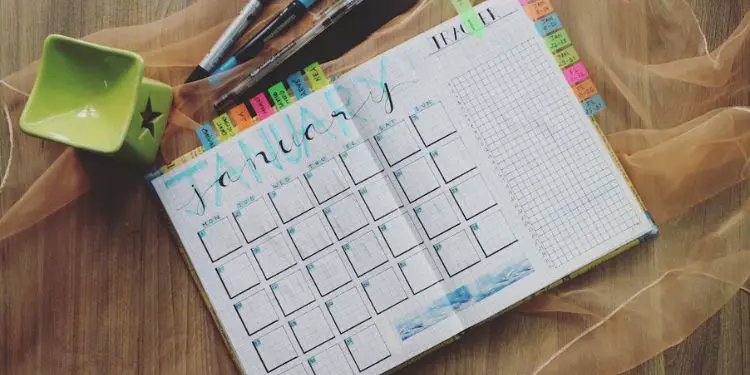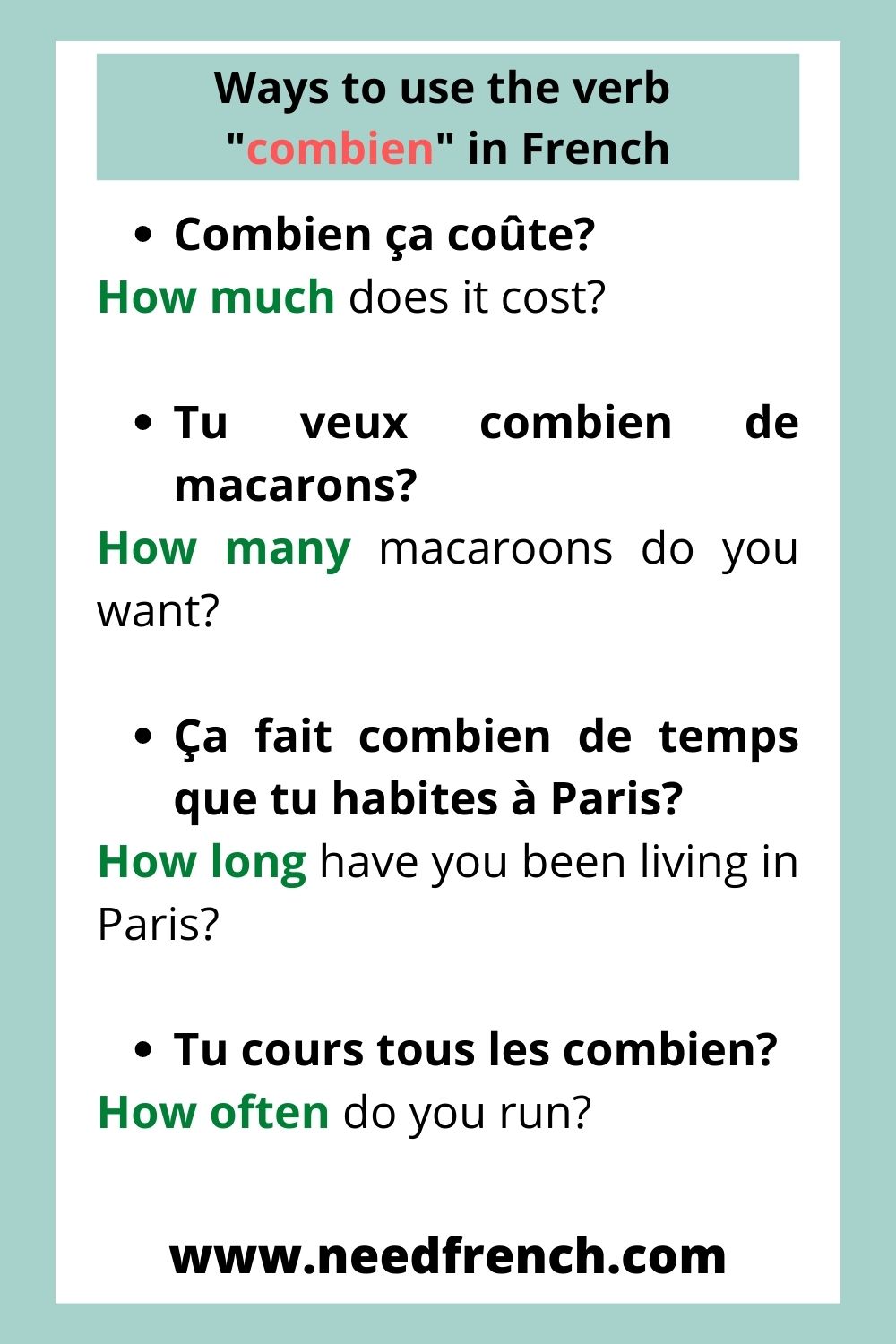This article presents key phrases and expressions for talking about your morning routine, meals, work or school, evenings and bedtime. You will find detailed examples to easily describe your typical days. Learn the necessary vocabulary and structures to discuss your daily habits in French.
Table of Contents
ToggleWhat are some common phrases for describing daily routines in French?

Here are some common French phrases for describing daily routines:
- Je me réveille à… – I wake up at…
- Je me lève – I get up
- Je fais ma toilette – I get ready (shower, get dressed, etc.)
- Je prends une douche et je m’habille. – I take a shower and get dressed.
- Je prends mon petit-déjeuner – I eat breakfast
- Je me brosse les dents – I brush my teeth
- Je pars pour le travail/l’école – I leave for work/school
- Je commence à travailler à… – I start working at…
- Je déjeune à… – I eat lunch at…
- Je termine le travail à … – I finish work at …
- Je rentre à la maison – I return home
- Je prépare le dîner – I make dinner
- Je mange avec ma famille – I eat with my family
- Je me détends/je me repose – I relax/rest
- Je regarde la télé – I watch TV
- Je lis un livre – I read a book
- Je me couche à… – I go to bed at…
- Je fais mes devoirs. – I do my homework.
- Je promène le chien le matin/le soir. – I walk the dog in the morning/evening.
- Je fais du yoga/de la méditation après le petit-déjeuner. – I do yoga/meditation after breakfast.
- Je vérifie mes emails et les réseaux sociaux. – I check my emails and social media.
- Je prépare le déjeuner de mes enfants. – I make my kids’ lunch.
- J’emmène les enfants à l’école. – I drive the kids to school.
- Je vais chercher les enfants à l’école. – I pick up the kids from school.
- J’aide mes enfants avec leurs devoirs. – I help my kids with homework.
- Je regarde les informations à la télévision. – I watch the news on TV.
- Je prends une tisane avant d’aller au lit. – I drink herbal tea before going to bed.
- Je me couche tôt quand je travaille le lendemain. – I go to bed early when I have to work the next day.
- Je fais des courses le mercredi soir. – I go grocery shopping on Wednesday night.
- Je passe l’aspirateur et je fais le ménage le weekend. – I vacuum and clean the house on the weekend.
- Je vais à la salle de sport 3 fois par semaine. – I go to the gym 3 times a week.
- Je prends le bus/le métro pour aller travailler. – I take the bus/subway to go to work.
- J’écoute de la musique en préparant le dîner. – I listen to music while making dinner.
- Je téléphone à mes parents le dimanche soir. – I call my parents on Sunday evening.
- Je passe du temps avec mes amis le vendredi soir. – I spend time with friends on Friday night.
- Je fais une sieste rapide après déjeuner. – I take a quick nap after lunch.
- Je planifie mon emploi du temps pour la semaine. – I plan out my schedule for the week.
- Je réserve mes activités pour le weekend. – I schedule activities for the weekend.
- Je vais me coucher tôt la veille d’un grosse journée. – I go to bed early the night before a big day.
- Le weekend, je fais du jardinage et je m’occupe de mes plantes. – On the weekend, I do gardening and take care of my plants.
- Je prépare le sac de sport de mes enfants pour le foot/le basket. – I prepare my kids’ sports bags for soccer/basketball.
- Je conduis mes enfants à leurs activités extrascolaires. – I drive my kids to their after-school activities.
- Je récupère le courrier en rentrant du travail. – I collect the mail when I get home from work.
- J’arrose les plantes le soir avant d’aller me coucher. – I water the plants at night before going to bed.
- Je range et nettoie la maison le dimanche. – I tidy up and clean the house on Sundays.
- Je fais mes lessives le weekend. – I do laundry on the weekends.
- Je lis le journal le matin avec mon café. – I read the newspaper in the morning with my coffee.
- Je prends rendez-vous chez le médecin et le coiffeur. – I make appointments with the doctor and hairdresser.
- Je planifie mes repas pour la semaine. – I plan out meals for the week.
Using these types of phrases, you can easily describe your typical daily routine in French.
How do you talk about the time of day in French?

In French, you use different phrases to indicate the time of day:
- Le matin – In the morning
- L’après-midi – In the afternoon
- Le soir – In the evening
- La nuit – At night
For example:
- Je me réveille le matin à 7h. – I wake up in the morning at 7am.
- J’étudie l’après-midi après les cours. – I study in the afternoon after classes.
- Je dîne avec ma famille le soir. – I eat dinner with my family in the evening.
- Je me couche tard la nuit. – I go to bed late at night.
You can also use more specific time frames:
- Le début de la matinée – Early morning
- La fin de la matinée – Late morning
- Le début de l’après-midi – Early afternoon
- La fin de l’après-midi – Late afternoon
- Le début de la soirée – Early evening
- La fin de la soirée – Late evening
How do you express frequency in French?
Here are some common ways to express frequency in French when describing routines:
- Tous les jours – Every day
- Chaque jour – Each day
- Tous les matins – Every morning
- Tous les soirs – Every evening
- De temps en temps – From time to time
- Souvent – Often
- Parfois – Sometimes
- Rarement – Rarely
- Jamais – Never
For example:
- Je me lève tôt tous les matins. – I wake up early every morning.
- Je fais du sport trois fois par semaine. – I exercise three times a week.
- Je regarde la télé le soir. – I watch TV in the evenings.
- Je sors avec mes amis de temps en temps. – I go out with my friends from time to time.
How do you use reflexive verbs to talk about routines?
In French, reflexive verbs are often used to describe routines and daily actions. Here are some examples:
- Je me lève à 7h. – I get up at 7am.
- Il se douche le matin. – He showers in the morning.
- Tu te brosses les dents avant de te coucher. – You brush your teeth before going to bed.
- Nous nous habillons après le petit-déjeuner. – We get dressed after breakfast.
- Vous vous reposez l’après-midi. – You rest in the afternoon.
- Ils se couchent tôt. – They go to bed early.
To conjugate reflexive verbs, you need a reflexive pronoun that matches the subject (je, tu, il, elle, on, nous, vous, ils/elles) + the conjugated verb. Reflexive verbs are very common in French routines.
What are some key verbs for daily activities in French?
Here are some common verbs used to describe daily activities in French:
- Se réveiller – to wake up
- Se lever – to get up
- Faire sa toilette – to get ready
- Prendre une douche – to take a shower
- S’habiller – to get dressed
- Se brosser les dents – to brush one’s teeth
- Prendre le petit-déjeuner – to eat breakfast
- Déjeuner – to eat lunch
- Dîner – to eat dinner
- Cuisiner – to cook
- Travailler – to work
- Étudier – to study
- Lire – to read
- Regarder la télé – to watch TV
- Surfer sur Internet – to surf the Internet
- Sortir – to go out
- Rentrer – to return home
- Se reposer – to rest
- Se coucher – to go to bed
How do you indicate what time you do activities in French?
There are several ways to indicate when you perform activities in French:
- Time + Reflexive Verb
Ex: Je me lève à 7h. – I wake up at 7am.
- Time + Infinitive Verb
Ex: Je commence à travailler à 9h. – I start working at 9am.
- Time + Être + Present Participle
Ex: Je suis au lit à 22h. – I am in bed at 10pm.
- Time + Avant/Après + Noun
Ex: Je prends une douche avant le petit-déjeuner. – I take a shower before breakfast.
- Time + Pendant/Durant + Noun
Ex: Je travaille pendant la matinée. – I work during the morning.
- Time + jusqu’à + Time
Ex: J’étudie de 18h jusqu’à 20h. – I study from 6-8pm.
So in summary, use time + verb, time markers like avant/après/pendant/jusqu’à, and être + present participle to indicate when activities happen.
Example describing daily routines:
Enseignante: Bonjour Hugo ! Comment vas-tu aujourd’hui ?
Hugo: Bonjour ! Je vais bien, merci.
Enseignante: Parfait. Aujourd’hui nous allons parler de nos routines quotidiennes. Peux-tu me décrire ta journée typique ?
Hugo: Bien sûr ! Alors, je me réveille à 7 heures du matin. Après m’être levé, je prends une douche rapide et je m’habille. Vers 7 h 30, je prends mon petit-déjeuner qui est généralement du pain, du beurre et de la confiture avec un verre de jus d’orange.
Enseignante: D’accord, et ensuite ? Que fais-tu après le petit-déjeuner ?
Hugo: Après le petit-déjeuner, je me brosse les dents et je prépare mon sac à dos pour l’école. Je pars de la maison vers 8 heures. Mes cours commencent à 8 h 30 précises. Le matin, j’ai généralement des cours de maths, de français et d’histoire.
Enseignante: Je vois. Et qu’est-ce que tu fais pendant la pause déjeuner ?
Hugo: Je mange à la cantine de l’école. Le déjeuner est à 12h30. Je mange généralement une entrée, un plat chaud, et un yaourt. L’après-midi, mes cours reprennent à 14h. J’ai souvent sport, anglais ou sciences l’après-midi. Mes cours se terminent à 16h30.
Enseignante: D’accord, et après les cours ? Que fais-tu le soir ?
Hugo: Après les cours, je rentre chez moi à pied ou en bus. Une fois à la maison, je fais mes devoirs immédiatement. Cela me prend environ une ou deux heures. Vers 19h, nous prenons le dîner en famille. Après le dîner, je me repose un peu en lisant ou en utilisant mon ordinateur. Je vais me coucher vers 22h car je dois me lever tôt pour l’école le lendemain !
Enseignante: Merci Hugo ! C’est très bien. Tu as décrit ta routine quotidienne en détail. Maintenant à mon tour. Ma journée commence à 6h30. Je me lève, prends une douche et m’habille. Puis je prends un café rapide avant de partir pour le travail. Je commence à travailler à l’école à 7h45…
Teacher: Hello Hugo! How are you today?
Hugo: Hello! I’m good, thanks.
Teacher: Perfect. Today we are going to talk about our daily routines. Can you describe your typical day to me?
Hugo: Of course! So, I wake up at 7am. After getting up, I take a quick shower and get dressed. Around 7:30am, I have breakfast which is usually bread, butter and jam with a glass of orange juice.
Teacher: Okay, and then what? What do you do after breakfast?
Hugo: After breakfast, I brush my teeth and prepare my backpack for school. I leave the house around 8am. My classes start at 8:30 sharp. In the morning, I usually have math, French and history classes.
Teacher: I see. And what do you do during lunch break?
Hugo: I eat in the school cafeteria. Lunch is at 12:30pm. I usually have a starter, a hot dish, and yogurt. In the afternoon, my classes resume at 2pm. I often have sports, English or science classes in the afternoon. My classes end at 4:30pm.
Teacher: Okay, and after school? What do you do in the evenings?
Hugo: After school, I go home by foot or by bus. Once home, I do my homework immediately. It takes me about one or two hours. Around 7pm, we have dinner as a family. After dinner, I relax by reading or using my computer. I go to bed around 10pm because I have to wake up early for school the next day!
Teacher: Thank you Hugo! Very good. You described your daily routine in detail. Now it’s my turn. My day starts at 6:30am. I wake up, shower and get dressed. Then I have a quick coffee before leaving for work. I start working at school at 7:45am…
In summary, being able to describe your daily routine is an important part of mastering French. Start by learning key verbs for daily activities and reflexive verbs that are commonly used for routines. Use time expressions and adverbs of frequency to indicate when and how often you do activities. Talk about your morning, work/school day, evenings, meals, and bedtime routine by building sentences using the vocabulary and grammar covered.















😍😍 I love it thank you soon much
This will help me so much on my French Examination